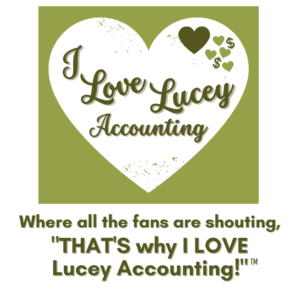Let’s be honest, debt gets a bad rap. However, almost two-thirds of all small businesses have it. Sometimes, having small business debt can help you expand and grow your business, so it isn’t always the big bad wolf you might think it is. Rather than be afraid of your small business debit, be in charge. Understand how your debt can affect your business and have a plan in place to reduce or eliminate it completely.
Business Debt Basics
As mentioned earlier, debt really does have a bad reputation. Although debt can get out of hand if not managed properly, it can also be beneficial to help your small business grow. For example, you may need to hire more staff, open a store front, or make physical or technological improvements. So what do you do? You apply for a loan to pay for these changes. If your debt isn’t managed responsibly, it can become a problem and be the “monster in the closet” you dread to face. To avoid this, there are a few basic guidelines to follow:
- Keep a balanced debt-to-income (DTI) ratio. Lenders will review this ratio to see if they want to lend you money. What is a DTI? Essentially, it shows how much of your monthly profit is going towards your existing debts. If this ratio is too high, lenders may be concerned about getting paid back.
- A good debt-to-income ratio is anywhere in the mid to low 30%s.
- Ensure you are making regular monthly payments. To stay in good standing with creditors and lenders, it is important to make your scheduled payments. Plus, it ensures that you won’t be charged extra interest or late penalties.
Eliminating Business Debt
Maybe you are having trouble keeping track of all of your debt, or maybe you’ve just had enough. Either way, there are steps you can take to help you on your journey of eliminating business debt:
- Review Your Budget: Consider partnering up with whoever is in charge of your business expenses and dive in deep. If you don’t have any budget tools readily available, now is a good time to partner up with the My Accountant Bookkeeping and Tax Service Inc team. They can help you setup your initial budget, or help you to review your current one. Once you see how much money you are bringing in and where this money is going (such as payroll, inventory, debt, etc), you can determine how much cash is leftover each month. From there, you can decide how much of this surplus you want to allocate to paying off your debt. Come up with an amount that will make an impact without putting you or your business in a bind.
- Reviewing your budget will also help with the remaining steps below, so make this your first priority.
- Avoid Credit or Loans: Because your goal is to eliminate debt, avoid putting any purchases on your credit cards or lines of credit. If you don’t have the cashflow to make the purchase, consider holding off unless absolutely necessary.
- When reviewing your budget above, in addition to putting money towards your debt, consider putting extra money aside in a spending account to make any of these potential purchases.
- Consolidate Debt: If you find yourself having trouble keeping track of all of your debt and how much you owe on a monthly basis, it’s probably time to consolidate your debt onto one credit line. This can also save you money! Get rid of credit cards or lines of credit with huge interest rates, and transfer the balance owed onto your lowest interest credit line. You may even find that you can open a new credit line with no interest for a limited amount of time. If you can take advantage of that, then move your balances onto the limited-time no interest card and try to pay it all off within that window.
- Cut Costs: Once again, refer to your budget. Review your purchases. Is every purchase necessary to run the business efficiently? Perhaps you can eliminate some regular charges or lower the cost of others. Consider shopping around for different vendors with lower prices or offers. Maybe if you have a reoccurring purchase with a vendor you can obtain a discount. See what is available and save money where you can.
- Increase Revenue: The fastest way to payoff debt is to bring in more money. Review any open invoices you may have with clients. Are you waiting to be paid for your services? If so, it’s time reach out and request your invoice be paid. Consider charging a late fee for the inconvenience. You can also consider raising your prices. Little increases will have a small effect on the client and a large effect on your business. You can also increase revenue by having higher margins. Perhaps you can get your product from a cheaper source or buy in larger quantities for a discounted rate.
It’s true, debt really can hang over your head. But, just because you have small business debt doesn’t mean you are doomed. Understand your limits and have a plan in place to eliminate your debt over the course of a specific period in time. Remember to take advantage of your accountants help. Not only can they guide you on debt related decisions, but they can also assist you creating a budget to ultimately free you from your debt.


